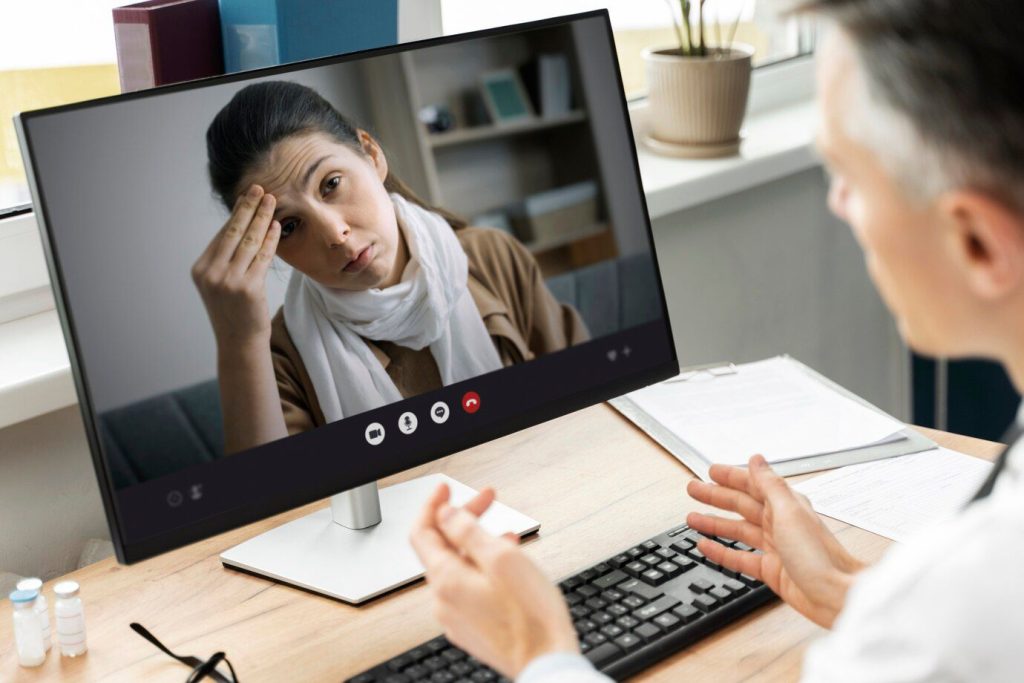Talking about mental health on social media can be a great way to spread awareness and reduce stigma, but there are some serious ethical lines that mental health professionals need to be aware of. We recently talked with the people at Siren Training for this topic. Siren Training offers Mental Health First Aid Courses, Neurodiversity Training for Workplaces, and Wellbeing Workshops, making them a valuable resource when it comes to understanding the challenges of discussing mental health in public spaces. Unlike influencers or bloggers, therapists and mental health practitioners have to follow industry regulations like HIPAA (for those in the U.S.), GDPR (in the EU), and professional ethical guidelines that ensure client confidentiality and professionalism.
A big part of this is maintaining boundaries. Just because a client follows you on Instagram doesn’t mean it’s okay to interact with them in a way that could blur the therapist-client relationship. Some professionals even choose to keep their profiles private to avoid potential conflicts. If you’re actively using social media for professional purposes, make it clear that your content is for general education and not a replacement for therapy.
Platforms like Instagram and TikTok are full of mental health content, and while it’s great to see these conversations happening, misinformation is everywhere. As a licensed professional, you have an ethical obligation to ensure what you post is accurate and responsible. Avoid making sweeping generalizations about diagnoses or treatments, and when in doubt, cite credible sources.

Choosing the Right Platforms & Content Strategy
Not all social media platforms are created equal, and where you post should depend on what you want to achieve. If you’re looking to connect with other professionals and share research-based content, LinkedIn might be your best bet. If you want to educate the public in a more casual way, Instagram and TikTok can be great options. Just be mindful of how algorithms work—short, engaging videos may get more traction, but the pressure to be entertaining can sometimes lead to oversimplified or misleading information.
Defining your purpose on social media will help you stay on track. Are you using it to share mental health tips? To advocate for systemic change? To promote your services? Each of these requires a different approach, and it’s easy to get lost if you try to do everything at once. Pick one or two main goals and focus on those.
One important ethical consideration is avoiding giving personalized advice. It’s one thing to share general coping strategies, but responding to individual mental health questions in your DMs or comments can quickly turn into a grey area. A good rule of thumb is to redirect people to appropriate resources rather than offering direct support online.
Maintaining Professionalism & Protecting Client Confidentiality
A huge concern for mental health professionals on social media is confidentiality. Even an innocent-sounding anecdote about a “client who once struggled with anxiety” can be risky. If there’s even a tiny chance that a former or current client could recognize themselves in your post, don’t share it. Some therapists opt to share fictionalized or generalized examples, but even then, you need to be careful.

Direct messages are another ethical minefield. If a follower reaches out saying they’re struggling, it can feel natural to want to help. But engaging in a therapeutic exchange over social media can violate professional boundaries and even legal guidelines. The best approach is to have a clear policy in place—something like, “I can’t provide therapy over DMs, but here’s a resource that might help.”
Public interactions also require careful consideration. If a client comments on your post, should you respond? Some professionals choose to ignore these comments to avoid crossing any lines, while others may respond with a simple acknowledgment without engaging in anything personal. Whatever you decide, be consistent.
Content Creation: Balancing Engagement & Ethics
Social media thrives on engagement, but ethical content creation for mental health professionals requires a balance between being relatable and staying professional. It’s tempting to hop on trends or share memes, and while humor can be an effective tool for reducing stigma, it’s crucial to ensure that jokes don’t minimize real struggles or spread misinformation.
When creating content, think about accessibility. Using plain language instead of clinical jargon makes your content more approachable, but you also don’t want to oversimplify complex mental health topics. Nuance is key. Instead of saying, “If you have trouble focusing, you have ADHD,” frame it as, “Trouble focusing can be a symptom of ADHD, but it can also be caused by stress, lack of sleep, or other factors.”
Personal stories can be powerful, but they come with risks. If you share parts of your own mental health journey, make sure you’re doing it in a way that maintains professional boundaries. Clients should never feel like they need to take care of their therapist or that their experiences are being compared to yours.

Managing Online Presence & Digital Boundaries
Keeping a healthy boundary between your personal and professional life is crucial when using social media. Some therapists create separate accounts—one for professional content and one for personal use—to keep things clear. If you choose to have just one account, be mindful of what you share. A casual post about your weekend might seem harmless, but it could change how clients perceive you in a clinical setting.
Handling negativity is another challenge. Misinformation, trolls, and even well-meaning but misguided comments can all show up on your posts. It’s okay to delete comments that spread harmful misinformation or attack others, but engaging in public debates can quickly become unproductive. If needed, set clear community guidelines for your page so followers know what’s acceptable.
Then there’s digital burnout. Constantly engaging with heavy topics can take a toll on your mental health, so it’s important to set boundaries around your social media use. Taking breaks, scheduling posts in advance, or setting “office hours” for engagement can help prevent overwhelm.
Wrapping It Up
Social media can be an amazing tool for mental health professionals, but it comes with responsibilities. Ethical guidelines, legal considerations, and professional boundaries should always be at the forefront of your strategy. By being mindful about what you post, how you engage, and where you set limits, you can use social media to educate, inspire, and connect without compromising your ethical standards.
At the end of the day, social media should be an extension of your work, not a replacement for real therapeutic relationships. Keep it ethical, keep it professional, and most importantly—keep taking care of yourself, too.



